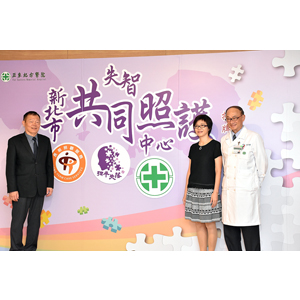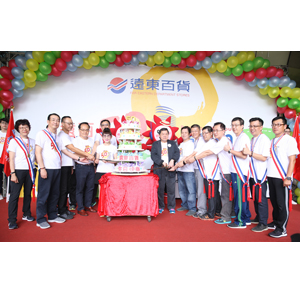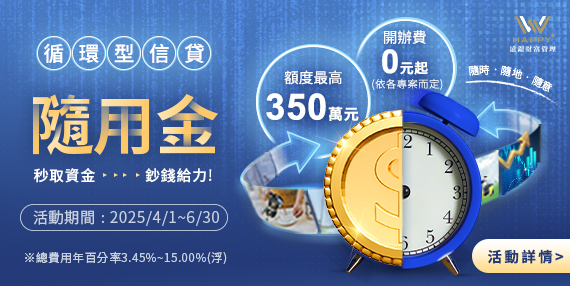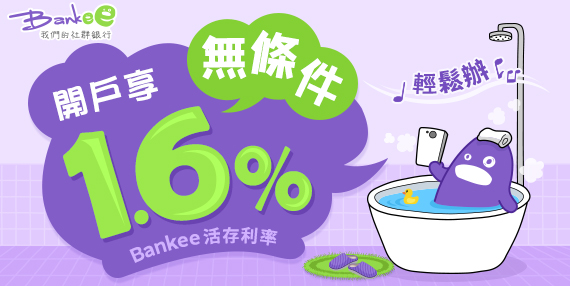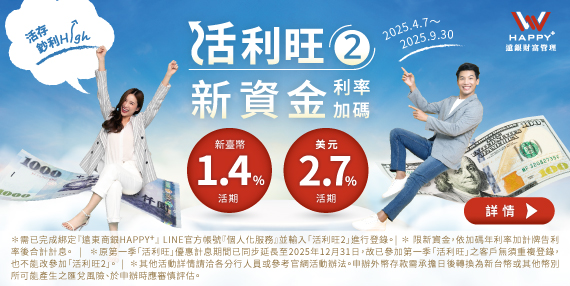01.2019 Cover Story
Observation of 2018 CSR/ESG Global and Taiwan development trend
Anhou Sustainability Development Consultant Co., Ltd. / President, Wang Junhong Manager, Director of Huang Zhengzhong
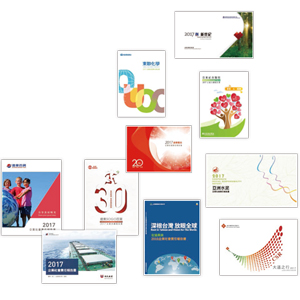
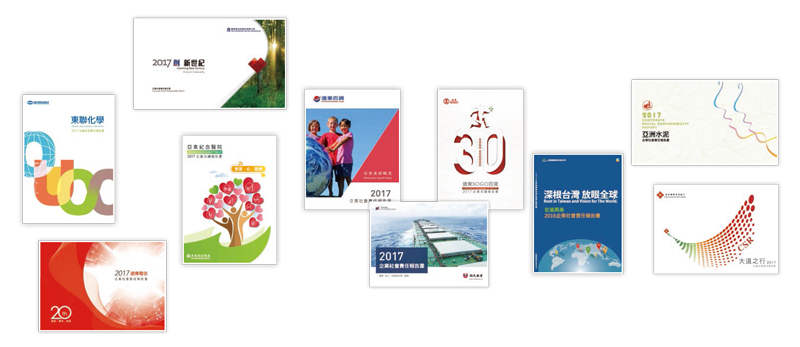
In the past two years, there have been several scandals, such as falsification of Fox automobile exhaust data, falsification of Mitsubishi automobile fuel consumption data, explosion of Samsung new mobile phone battery and bribery of the government, and recent falsification of Kobe steel product data, which show that financial information is no longer the only reference for measuring the operating capacity of enterprises. In order to respond to the needs of stakeholders, uncovering the performance of non-financial information or corporate social responsibility (CSR), including environment, society and governance, and making relevant information more transparent and credible, has become one of the most popular ways for global enterprises. On the other hand, as the United Nations calls for the global common implementation of Sustainability Development Goals (SDGs) and the global trend towards low-carbon economic development after the Paris Accord, new and sustainable issues related to enterprises have also developed rapidly, including setting internal carbon prices and setting science-based carbon reduction targets (SBT). Exposing climate-related financial risks, even promoting green financial systems or commodities, or even developing recycled economy innovative business models.
KPMG released its 10th Global Corporate Social Responsibility Report Survey in October 2017, covering the top 100 companies in 49 countries (or regions) with a total of 4,900 enterprises, the largest survey ever conducted. The report is presented with two data samples, N100 (the top 100 enterprises in the country) and G250 (the top 250 enterprises in the world). In addition to analyzing the trend of global non-financial disclosure and third-party confidence, it also examines the reporting status of enterprises on climate-related financial risks, SDGs, human rights issues and carbon reduction targets. Based on the results and observations of the survey report and the focus of international sustainability reviews such as CDP and DJSI on emerging sustainability issues, this paper preliminarily summarizes the driving direction of CSR/ESG for reference.
Direction 1: Integrating Disclosure of Financial and Non-Financial Performance
Under the increasing attention of global investors, 78% of G250 and 60% of N100 enterprises have published CSR/ESG information in their annual reports, which is 13% and 4% higher than that in 2015, and 44% higher than that in 2011. Under the Financial Supervisory Commission, listed cabinet enterprises in Taiwan are required to disclose their operation related to fulfilling corporate social responsibility in their annual reports, and publicly quoted entity with a paid-in capital of more than 5 billion yuan and a specific industry (food, chemical, financial insurance, catering companies accounting for more than half of their revenue) are required to issue corporate social responsibility reports, which have also contributed to the publicly quoted entity. Many listed cabinet companies responded, making the number of Taiwanese companies issuing reports grow significantly. In addition, in response to the trend of financial and non-financial performance integration, the proportion of large international enterprises adopting the framework of Integrated Report (IR) has also shown a steady growth, with G250 and N100 currently reaching 14%. In Taiwan's N100, China Telecom, China Trust, Taiwan's Big Brother, Yingda, Cathay Pacific Financial Controls and Far EasTone Telecommunication also adopt IR. Framework.
Promotion Direction 2: Adoption of Third Party Confidence in CSR Report
Considering the credibility of non-financial reporting, more than two-thirds (67%) of G250 companies have adopted third-party confidence, while the N100 adoption rate is currently low (45%). Based on the growth trend, most of the N100 companies should implement the relevant confidence in the next two to five years. Data show that the countries with the fastest increase in confidence are those with the highest proportion of publications of CSR reports. For example, between 2015 and 2017, both Taiwan and Japan increased their confidence ratios by 14%, while the United States increased by 12%. These countries publish more than 88% of corporate responsibility reports. As far as Taiwan N100 is concerned, 74% of CSR reports have adopted third-party convictions. The criteria to be followed include AA1000, Confidence Criteria Bulletin No. 1 and ISAE 3000.
Driving Direction 3: Implementing SDGs into CSR Decision Making in Enterprises
The survey points out that the links between CSR/ESG activities and SDGs are gradually warming up. In a short period of time, 40% of enterprises in G250 and N100 have linked CSR/ESG activities to SDGs, and 31% of enterprises in Taiwan N100 have disclosed that relevant CSR activities or projects are in line with SDGs, indicating that SDGs have gradually become an important direction for enterprises to implement CSR. In addition, it is also evident from the latest evaluation items issued in 2017 by the CSR awards at home or the DJSI International Sustainable Evaluation, that the response and integration of SDGs have become one of the important issues that enterprises have to expose to the outside world. In addition to requiring enterprises to disclose the links and priorities with SDGs, DJSI requires enterprises to specify the business interests of practicing SDGs, as well as the key performance indicators (KPIs) of social or environmental orientation. To sum up, in order to achieve the ultimate goal of "promoting global Sustainability Development", enterprises should not only expose SDGs related to their own operations, but also deepen SDGs and implant them into their sustainable strategies and operational objectives, so as to jointly move towards SDGs through practical actions.
Promoting Direction 4: Emphasizing and Implementing Human Rights Management in Value Chain
As the global awareness of human rights continues to rise, human rights issues have gradually become a global business must respond to the project. Ninety percent of G250 and 73 percent of N100 companies attach importance to human rights in their reports, respectively, but only two-thirds of them disclose human rights-related policies, indicating that there is still room for progress in the implementation of human rights. In Taiwan, 82% of enterprises mention human rights issues in their reports. Most benchmarking enterprises formulate human rights policies within the framework of the UN Guiding Principles on Business and Human Rights issued by the United Nations in 2011. However, in addition to exposing the enterprises'own respect, avoiding human rights violations and improving any negative impacts involved, the international sustainability assessment pays more attention to the expansion of human rights risks in the management value chain than DJSI. To this end, enterprises should further monitor possible human rights risk issues in each link of the value chain, and take mitigation or remedial measures to address these issues, so as to implement and continuously strengthen global human rights management.
Promoting Direction 5: Setting Carbon Reduction Targets for Global Linkage and Implementing them
The Paris Accord calls for global enterprises to make greater efforts to save energy and reduce carbon. At present, more than 67% of G250 and 50% of N100 enterprises have set carbon reduction targets, compared with 41% in Taiwan. However, most enterprises'carbon reduction targets are not highly linked to global, regional or national carbon reduction targets, only 23% of which are related to the Paris Accord global carbon reduction targets, while the degree of association with regional or national targets is between 2% and 7%. Only 6% and 4% of Taiwan's N100 companies responded to national targets and the Paris Accord, respectively. Another 5% mentioned that they were setting a science-based carbon reduction target (SBT). On the other hand, according to the report released by CDP in October 2017, more than 1,389 enterprises worldwide have planned or implemented internal Carbon Pricing, 416 of which have used it as a carbon risk management practice, and 189 have used it as a low-carbon transformation tool to link carbon reduction strategies and objectives. In order to ensure the substantial contribution to the global carbon reduction target, enterprises should integrate the carbon reduction target with the global level, and by implementing the internal carbon price, specifically promote various carbon reduction actions.
Promoting Direction 6: Strengthen Disclosure of Financial Risks Related to Climate Change
Under the above trend, investors are more cautious in assessing the impact of climate change on investment targets. Therefore, enterprises need to disclose relevant and trustworthy financial risk information related to climate change. The survey results show that 48% of G250 enterprises recognize that climate change will bring related financial risks to enterprises, while only 28% of N100 enterprises, and 88% of Taiwan's N100 enterprises are exposed due to relevant norms. Generally speaking, there are significant differences in the percentages of climate change-related financial risks among G250 companies in their headquarters countries. For example, the percentages of enterprises headquartered in France, Germany and the United Kingdom are higher, while the percentages of enterprises headquartered in the United States and Japan are lower than 50%. At the same time, 63% N100 and 76% G250 have described the potential impact of climate change on enterprises, but only 2% of enterprises have further quantified and scenario analysis of related risks. The Task Force on Climate-related Financial Disclosure (TCFD) released in June 2017 the framework and guidelines for corporate disclosure of climate change-related financial information, which can assist enterprises or organizations in explaining the financial impact of climate-related risks and opportunities in order to provide investors with more information.
Direction 7: Evaluating and Quantifying the External Impact of Enterprises
As the quantity and quality of non-financial disclosure of global enterprises are gradually in place, multi-stakeholders begin to focus on whether enterprises can quantify their external impact or impact. For example, DJSI added the "Impact Measurement Valuation" question group in 2017 to ask whether enterprises quantitatively assess external social or environmental impacts; whether CDP investigates whether enterprises or organizations present the risks and opportunities of climate change in monetary terms; and whether GRI Standard redefines that enterprises or organizations should assess major owners. The IIRC Integrative Reporting Framework also recommends that enterprises or organizations expose the six types of capital input, output and impact in the business model.
According to DJSI data, up to 74% of the more than 2,000 enterprises assessed in 2017 have already introduced the assessment of external impact or impact, but only 15% have actually assessed and quantified it. The Top3 industries that responded better in this group are materials, telecommunication services and consumer Staples. DJSI also predicts that in 2018, it will further deepen the issue group perspective, and encourage enterprises to integrate external impacts or shocks with actual operations. At present, domestic enterprises have been introduced to assess their external impact or impact. Among them, Taiwanese Big Brother is the only telecommunications company that first publishes True Value and SROI.
epilogue
Since 2014, driven by the Financial Supervisory Commission, stock exchanges, over-the-counter trading centers and various sectors, the number of CSR reports issued by Taiwan's enterprises has reached a new high in recent years, reaching 515 in 2017. However, the trend of exposing the contents of CSR reports is still quite different from that of international sustainable issues, and the demand of stakeholders for non-financial information is not small. The difference.
In order to meet the needs of investors and to measure the external impact or impact caused by the operation of enterprises more comprehensively, there are currently relevant methodologies to monetize the external impact to present the true value of enterprises (True Value). For example, KPMG assisted Volvo Group in evaluating the real value of the Swedish electric bus project. The results showed that the total cost of the electric bus was lower than that of the traditional diesel bus. If the Swedish bus was replaced by the electric bus, it would save Swedish society US$225 million annually, and have significant benefits in public health, commuting efficiency and carbon reduction.
On the other hand, by means of SROI, enterprises can present the changes caused by public welfare projects before and after their investment in society, and the investment benefits generated, providing important references for enterprises in public welfare investment, internal decision-making, and overall public welfare strategy and layout, thus creating greater corporate and social value. For Taiwanese companies, KPMG has assisted in evaluating SROI for social welfare projects such as Xinxing Sunrise Public Welfare Supermarket, Acer Digital Motorcycle and Far Eastern New Century Corporation Classic Marathon.
In view of the international market dynamics, investors'attention to the non-financial performance of enterprises has continued to rise, and more attention has been paid to the integration and disclosure of the financial and non-financial performance of enterprises. In addition, the United Nations SDGs has become the responsibility and business opportunities of enterprises. Therefore, enterprises need not only to respond to external requirements and challenges, but also to assess the internal and external positive and negative impacts of various aspects of ESG, as well as the risks and opportunities they may encounter in the course of operation, so as to reveal the real value they create through systematic framework and monetization tools, so that the candlestick machine can be sustainable in the increasingly severe climate and market environment. First chance.(This article is reproduced in the "Monthly Journal of Accounting Research" in January 2018, which was authorized by the author and re-edited by the journal.)
[References]
1. KPMG, "The KPMG Survey of Corporate Responsibility Reporting 2017"https://home.kpmg.com/content/dam/kpmg/xx/pdf/2017/10/executive-summary-the-kpmg-survey-of-corporate-responsibility-reporting-2017.pdf(2017).
2. CDP, "Putting a price on carbon - Integrating climate risk into business planning"https://www.cdp.net/en/reports/downloads/2738(2017).
3. RobecoSam, DJSI 2017 Webcast: Impact Measurement Valuation and Supply Chain Management (2017).
4. KPMG, "KPMG True Value Case Study: Volvo Group"https://home.kpmg.com/content/dam/kpmg/pdf/2015/10/volvo-group-kpmg-true-value-case-study.pdf(2015).



